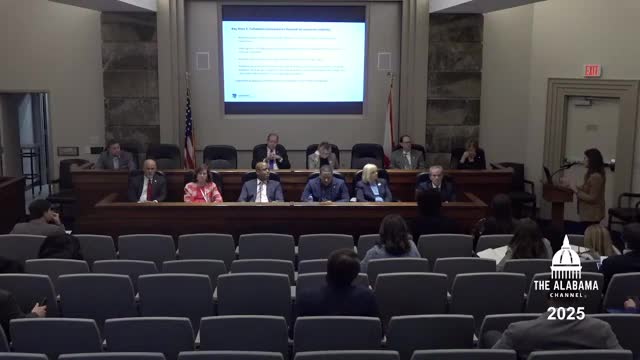Lawmakers and commissioners push occupational-licensure reform to remove employment barriers
Get AI-powered insights, summaries, and transcripts
Subscribe
Summary
Commission members discussed legislation and a forthcoming summit aimed at reducing occupational licensure barriers for people with criminal records, including proposals to limit denials that are unrelated to the licensed occupation.
Commission members and legislators discussed plans to pursue occupational-licensure reform to remove barriers that prevent people with criminal records from obtaining employment. The Justice Center presenter had identified collateral consequences, including occupational-licensing restrictions, as a major structural barrier to reentry.
Speakers said Alabama is among a small number of states that does not broadly limit consideration of criminal history in occupational licensing decisions; licensing bodies retain broad discretion to deny applicants with criminal records. Commission discussion cited roughly 100 statutory or administrative barriers in Alabama and an estimate (presented by the Justice Center) that 80% of those barriers limit access to work in a wide range of occupations.
Representative England recalled a prior bill that allowed judicial review of licensing denials but required a two-step process. Several commissioners said forthcoming legislation would narrow the grounds for denial so that a conviction could not be the sole basis for refusing a license unless the conviction directly related to the occupation (for example, financial crimes for financial managers or sexual offenses for childcare workers). The commission noted multiple parallel legislative efforts; senators and representatives said they would coordinate and that a private-sector summit hosted by Manufacture Alabama would be held to engage employers.
Speakers emphasized employers’ willingness to hire qualified reentry workers and cited a local example: a Perry County program with nearly 300 participants and 15 private-sector employer partners reporting zero new crimes among participants in recent years. Commitments to pursue licensure reform were framed as part of the commission’s economic-mobility and workforce-development work.
No vote was taken at the meeting; commissioners and legislators said they expect to support or pursue legislation in the coming session and to continue discussion in the economic-mobility working group.
